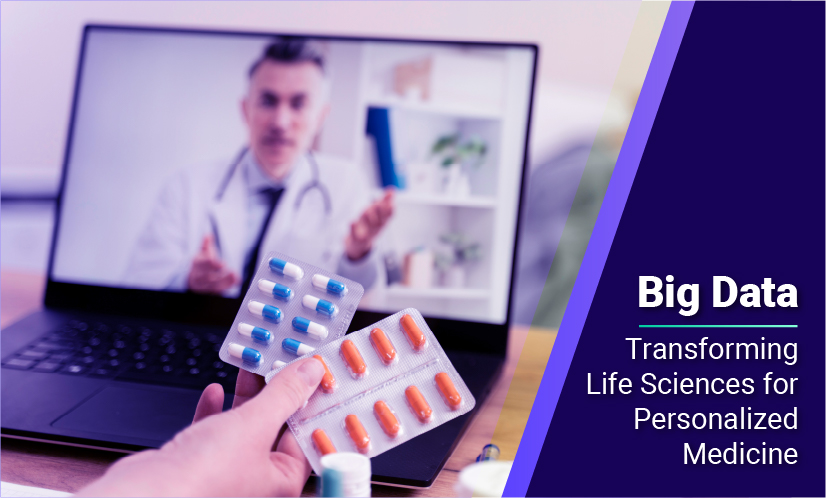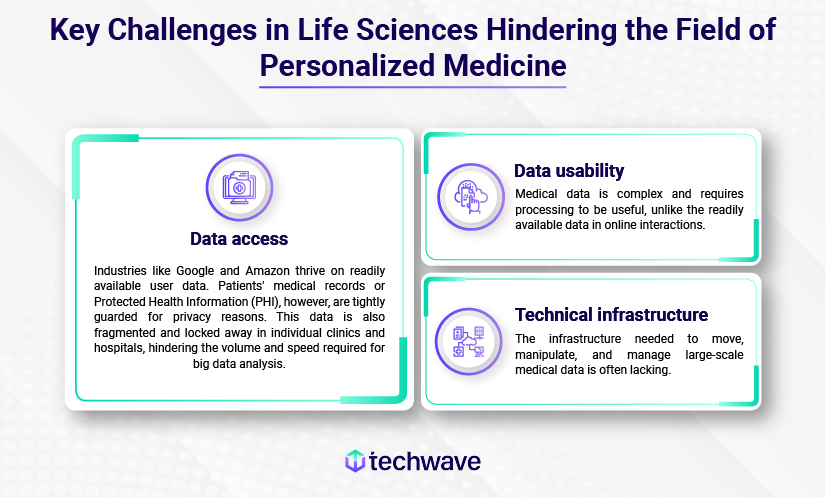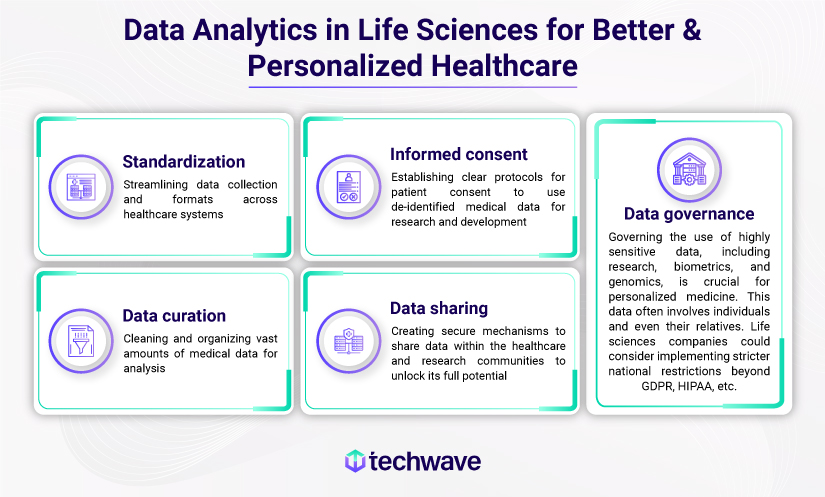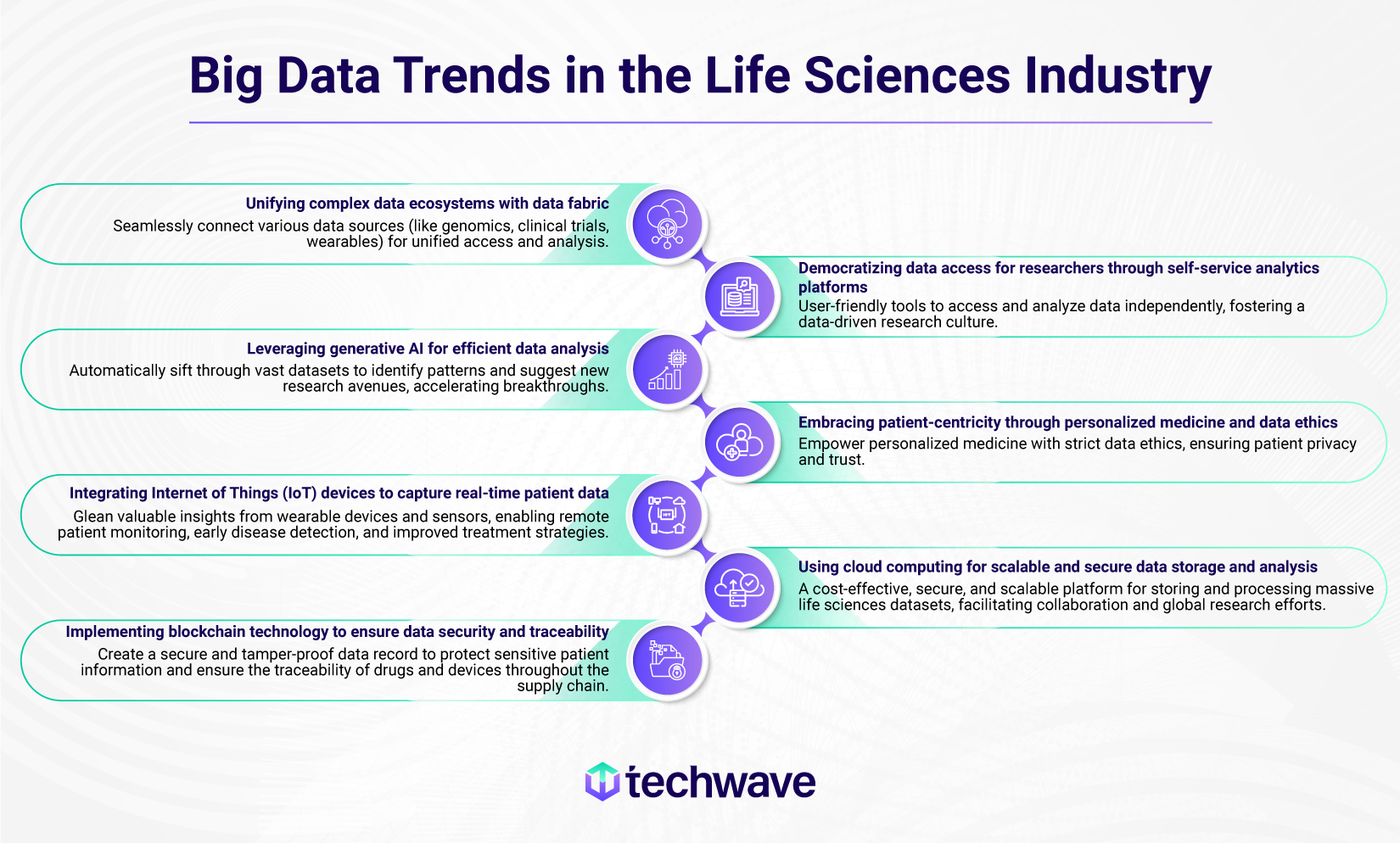
We all know the feeling – it’s Friday evening, and the weekend stretches before you. Your favorite tunes curated by Spotify fill the air. You tap your phone, and a perfectly customized meal arrives from your go-to food app. Even online shopping feels effortless, with recommendations and discounts tailored just for you. This is personalization, a force that shapes our everyday experiences.
However, in the world of life sciences and healthcare, medicine is just starting to tap into this potential. Personalized medicine holds immense promise, but to truly revolutionize healthcare, it needs to reach a broader base. Everyone deserves the benefits of healthcare that’s tailored to their individual needs, and this is more so today as patients expect healthcare to be convenient, just like everything else in their lives.
For decades, medicine has relied on a “one-size-fits-all” approach. Treatments are prescribed based on averages, not individual needs. This leads to suboptimal outcomes, with some patients not responding well to medications or experiencing unnecessary side effects.
Also, unorganized data, unclear communication, and the consequent inefficiencies within the system create a gap between what patients deserve and what they get. But the tide is turning.
This blog dives into the growing need, challenges, and exciting possibilities in personalized medicine. In this practice, healthcare providers prescribe treatment and care plans designed specifically for patients based on their unique genetic makeup, lifestyle habits, and medical history.
Navigating the data deluge: Implications for personalized medicine
As the healthcare landscape rapidly evolves towards value-based care, focusing on prediction, prevention, personalization, and patient participation (P4 medicine), it demands innovation in everything from patient interactions to healthcare models. It’s also crucial to remember that while leveraging healthcare data is essential, ensuring data security and privacy is equally vital.
Moreover, the explosion of connected devices , health apps, and genetic testing creates a massive flood of information. This data, rich with individual health details, holds immense potential for personalized medicine and faster healthcare breakthroughs. However, instead of neat nuggets, the healthcare industry grapples with a mountain of:
- Structured data: Like billing records and test results – clean and organized.
- Semi-structured data: Data from sensors and wearables – some order, but not perfect.
- Unstructured data: Doctor’s notes and prescriptions – valuable but chaotic.
How can healthcare players access and leverage this data effectively?
Data Analytics (DA) is the answer. Like other industries, life sciences companies and healthcare providers can transform this challenge into an opportunity for better outcomes.
Big data analytics: A game changer for personalized medicine
With big data analytics, the healthcare industry can create a world where:
- Patients take center stage: A 360° personalized journey guides patients to recovery, at home or anywhere.
- There’s smarter collaboration: Data empowers doctors, hospitals, and technology companies to share insights and deliver value-based care and personalized medicine for better results.
- Open platforms fuel efficiency: Open platforms (secure data sharing from various sources like EHRs, wearables, clinical trials, etc.) and automation unlock the best care at the lowest cost.
For example, lung failure treatment often can be a guessing game. What works for one might not work for another. However, clinical data analysis of millions of patients is changing that. Doctors can tailor treatments by finding subgroups with similar responses, potentially saving lives and getting patients home sooner. When new patients arrive at the hospital, their information is compared to millions of similar cases. This data helps doctors pinpoint the treatment most likely to get you well quickly. Even better, they might discover entirely new patient groups who don’t respond to current treatments. This could pave the way for personalized medicine with altogether new drugs.
Another healthcare area that data and analytics can empower is rare diseases, which has long been a treatment wasteland. Drug companies struggle to find these patients, hindering research and leaving them with few options. But progress is being made. Easier access to medical records, genetic data, and powerful analytics are bringing us closer to personalized medicine for these forgotten patients.
According to McKinsey, life sciences companies are seeing early success (5-15% profit increase in some areas) from Digital Tools and Data Analysis (DnA), but they’re only scratching the surface. Experts estimate full utilization could unlock a staggering $130-$190 billion annually, a massive leap from the current global impact of $6-$9 billion.
So, the question is: Despite the promise of big data solutions for personalization, why are healthcare and life sciences lagging behind other industries?
Why the lag? Big data challenges in life sciences & healthcare
Big data revolutionized industries like online streaming and retail (Netflix, Amazon, etc.) by personalizing experiences based on user data. However, healthcare & life sciences lag due to several key challenges, as tabulated below.

We need advanced analytics solutions in several areas to overcome these hurdles and leverage big data in life sciences for better healthcare.
For example, standardization and regulations (like FDA, CFR, HIPAA, etc.) are critical in this highly regulated realm. Implementing standardized metadata and tool interoperability across data sources can help the research community share valuable insights easily and accelerate drug innovations. Meanwhile, real-time data can help regulators process more data faster, make better regulatory decisions, prioritize patient safety, and expedite the approval of new drugs and therapies. (Check the table below)

By addressing these challenges and promoting data access and use, we can unlock the true power of big data for personalized healthcare and improved outcomes.

Encouraging partnerships between tech behemoths and healthcare, pharmaceutical, and clinical trial institutions is critical. Tech companies bring advanced data analytics and other cutting-edge technologies to the table, while healthcare and life sciences companies add their deep subject expertise and clinical insights, speeding up drug development and unlocking breakthroughs in personalized medicine. Additionally, the inclusion of analytics expertise into the drug development pipeline improves decision-making processes at all stages.
In short, by collaborating within and across industries, healthcare can benefit from the latest advances in data science, such as AI in data & analytics, data governance, democratization, security and compliance, etc. Given the classified nature of information, healthcare providers and life sciences companies can trust only an expert data and analytics consultant with a proven track record to extract relevant insights from such sensitive data. As discussed below, these partnerships have immense potential.
Big data analytics applications in personalized medicine
The life sciences industry is already harnessing the potential of big data in exciting ways, as illustrated below.

However, let’s specifically explore some of the most impactful big data applications in personalized medicine.
1. Genomics medicine
Human genetic blueprint – the human genome holds the key to personalized medicine, a transformative approach to healthcare. By analyzing vast amounts of genomic data using data analytics, researchers can identify patterns linking specific genes that reveal:
- Disease predisposition: Know patients’ risk for specific illnesses and take proactive steps to stay healthy.
- The perfect prescription: No more trial and error with medication! Drugs can be tailored to a patient’s specific genes for optimal effectiveness and dosage.
Pharmacogenomics (PGx) takes things a step further. This powerful field combines pharmaceuticals with genomics. By analyzing patients’ genes, PGx predicts how their bodies process and respond to different medications.
Warfarin, a blood thinner, is a prime example of how pharmacogenomics can improve treatment. While it prevents blood clots, the ideal dose varies significantly between people. PGx testing identifies genetic variations that affect Warfarin metabolism. With this knowledge, doctors can prescribe a personalized dose, reducing the risk of complications like bleeding.
2. Drug discovery
Pharmaceutical data analytics has significantly improved drug discovery and, consequently, personalized medicine by unlocking the secrets within our genes. Here’s how:
- Identifying specific drug targets: Traditionally, drug discovery was a shot-in-the-dark approach. Data analytics in personalized medicine allows researchers to analyze vast genetic datasets. This helps researchers pinpoint disease-causing mutations, leading to drugs that target these specific mechanisms for fewer side effects.
- Finding suitable candidates: Data analytics helps design more efficient clinical trials. Researchers can analyze genetic data from potential participants to select those with a higher likelihood of responding to the drug being tested. This ensures trials focus on the most relevant patient groups, leading to faster development of effective treatments.
- Personalized dosage: As discussed earlier, PGx analyzes a patient’s genes to predict their response to a medication, allowing:
- Identifying responders for successful trials
- Excluding non-responders to improve safety
- Tailoring drug dosage for maximum effectiveness and minimal side effects
For example, traditionally, advanced bladder cancer meant harsh chemo. Not anymore! Personalized medicine research identified an EGFR mutation that makes some patients better suited for immunotherapy. Thanks to this research, IMFINZI, a targeted drug, was developed, offering a more effective option (monotherapy) with fewer side effects for a specific group of patients.
3. Biomarkers
Data analytics revolutionizes biomarkers—proteins, genes, or imaging from blood, urine, or tissue. Researchers sift through this data to find patterns, leading to further discoveries in personalized medicine. Genetic data, for instance, can reveal which variations respond best to specific drugs. These biological detectives provide critical information that empowers doctors to design personalized treatment plans based on a patient’s unique biomarker profile, such as:
- Early disease detection: Biomarkers act as red flags, alerting doctors to potential problems before symptoms even appear.
- Disease prognosis: These markers can predict how a disease might progress, allowing doctors to estimate risks and plan treatment accordingly.
- Personalized treatment: By analyzing a patient’s unique biomarker profile, doctors can choose the most effective treatment with minimal side effects.
- Treatment monitoring: Tracking biomarker changes helps doctors monitor a patient’s response to treatment and adjust it if needed.
For example, EGFR Mutation and Lung Cancer Treatment: EGFR (Epidermal Growth Factor Receptor) is a protein that fuels cell growth. Mutations in this gene are found in a subset of lung cancer patients. Data analytics in biomarker research played a crucial role here:
- Researchers analyzed genetic data from lung cancer patients alongside their treatment outcomes.
- This analysis revealed that patients with a specific EGFR mutation responded significantly better to a targeted therapy drug than traditional chemotherapy.
4. Autologous cell therapy
Autologous cell therapies harness a patient’s own cells to fight disease. But finding the right cellular warriors is a complex task. Here’s where clinical data analytics significantly helps in:
- Identifying the cell: Integrates vast amounts of genetic information, patient history, and cell characteristics, allowing researchers to identify promising cell types for specific treatments
- Predicting cell function: Predicts cell function based on a cell’s genetic makeup and other data, prioritizing cells with the most potent therapeutic potential
- Optimizing cell engineering: Refines techniques for engineering these cells, leading to more potent and effective therapies
For example, Chimeric Antigen Receptor (CAR) T-cell therapy is a personalized approach to cancer treatment where a patient’s T-cells are engineered to recognize and attack cancer cells. Data analytics plays a vital role here:
- Patient data analysis: Identify patients whose T cells have the potential to be effectively engineered for CAR T-cell therapy
- Predicting treatment response: Analyze a patient’s genetic data and tumor characteristics to predict how well they might respond to CAR T-cell therapy
- Optimizing CAR design: Help researchers analyze the effectiveness of different CAR designs in targeting specific cancer types
Techwave: Advancing Personalized Medicine with Big Data & Analytics in Life Sciences
The future of life sciences lies in harnessing the potential of personalized medicine. Techwave is your one-stop partner, empowering you with a comprehensive suite of data & analytics solutions across industries.
Our data governance expertise ensures your information’s integrity while our advanced analytics, including predictive modeling, unlock valuable insights. This frees your researchers from IT complexities, allowing them to focus on groundbreaking discoveries.
Beyond data & analytics, we offer a wide range of services to optimize your entire life sciences operation. This includes support in manufacturing, sales & marketing, supply chain management, and additional functions. Furthermore, our dedicated R&D team offers comprehensive support, including drug portfolio management, ensuring your research stays ahead of the curve.
Don’t just navigate the data deluge—leverage it. Partner with Techwave to unlock the full potential of personalized medicine and ensure it becomes a reality, not just a privilege.
